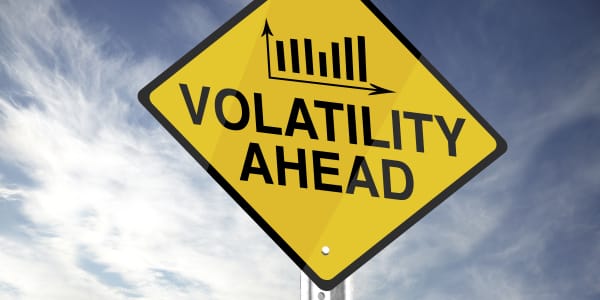When China sneezes … well, you know the rest.
The volatility in financial markets last week speaks to the growing importance of China to the global economy. As growth forecasts for the world's second-largest economy and biggest engine of growth over the last decade continue to fall, the outlook for the global economy remains uncertain.
"Global growth has been frustratingly fragile," said Joe Davis, global chief economist for Vanguard Group. "In the last three years, it has been significantly lower than the cycle a decade ago, and there is little acceleration in any economy of the world right now."
Davis sees a convergence in growth rates occurring in the global economy, with emerging markets accounting for a significantly smaller share of world growth than in the last two decades and the developed markets accounting for relatively more of it. "This is not a cyclical downturn but a long-term structural issue," he said.
The emerging markets, as a group, have been particularly vulnerable to the slowdown in the Chinese economy. Many have relied on debt-fueled investment and infrastructure spending in China to consume their commodity exports.
As China makes its transition to a slower-growing, consumer-oriented economy, its demand for everything from oil and base metals to industrial materials has marginally slipped and caused the prices of those commodities to plunge.
"The emerging markets need deleveraging and structural reform," Davis said. "They need a new business model."
China and the emerging markets have underperformed consensus growth estimates for the last four years, and most see little chance of reversing that trend in 2016.
The Chinese government's fitful embrace of free-market policies for its currency and financial assets is also complicating matters. It appears that the country's central bankers are headed for a trial by fire.
Chinese policymakers have the hardest job ahead of them," Davis explained. "They need to fight the tendency to react to short-term volatility. If China doesn't become more open and capitalistic, they run the risk of falling into stagnation."
The expectations for growth in the U.S. are too high. The Fed will have to lower its projections of how quickly interest rates will rise.Brian Jacobsenchief portfolio strategist at Wells Fargo Funds Management
There will likely be more missteps in the short term, but most economists believe that the Chinese government still has enough foresight and foreign reserves to continue its reforms of the financial system.
"It's an impossible triad to have an independent central bank, free capital movement and a fixed currency," said Neil Dutta, head of economic research at Renaissance Macro Research. "You can't have it all, and to the extent that they're moving away from trying to achieve that is a good thing."
U.S. economy: Boring is good
The sluggish recovery of the U.S. economy since the financial crisis may have disappointed many economists, but there's a bright side to the picture. "This has been an unlevered expansion," said Davis at Vanguard. "Growth over the last six years has been 2 percent to 2.5 percent, compared to 3.5 percent in the '80s and '90s. But this growth is more sustainable."
The deleveraging of consumer households and the refinancing of corporations with low interest debt has put the U.S. in a relatively better position than Europe and particularly China and the emerging markets, where private debt has risen dramatically in the last decade.
Most forms of consumer debt — notably credit card balances and mortgages — have declined in the U.S. since 2009, and the dynamic could reverse as the economy continues to show growth.
"The trend is probably bottoming out now, and we may see increases in consumer debt from here," said Brian Jacobsen, chief portfolio strategist at Wells Fargo Funds Management.
Jacobsen doesn't, however, think the economy is headed for the kind of growth and potential inflation that the Federal Reserve Bank appears to believe.
He expects the U.S. economy to grow by 2.5 percent this year — probably just slightly better than 2015.
"The expectations for growth in the U.S. are too high," said Jacobsen. "The Fed will have to lower its projections of how quickly interest rates will rise. I think they'll only hike rates twice this year."
He expects the U.S. economy to continue on a consistent if uninspiring growth trajectory and is encouraging clients to look outside the U.S. for investment opportunities — largely because other economies stand a better chance of outperforming low expectations.
Europe — the dark horse
Europe could be the source of the biggest upside surprise. While the Syrian refugee crisis is challenging the European Union and its open-border policy, the free movement of goods, services and capital will remain intact. A U.K. rejection of its current E.U. membership — the "Brexit" referendum is scheduled to take place before the end of 2017 — is a looming risk that could rattle European and global markets, but Jacobsen thinks that Europe will continue to show economic improvement.
"This won't be the demise of the European experiment," he said. "It may challenge people to reconsider what Europe should look like, but it will only make a slight difference."
It has taken Europe longer to reform its banking sector post-financial crisis than the U.S., but the industry has, for the most part, adjusted to the new Basel III regulatory reserve requirements.
"European banks were shrinking their loan books up until the end of 2014; now they're lending more," Jacobsen said, adding, "They're still in the early stages of this change."
Dutta at Renaissance Macro Research also thinks Europe could positively surprise on economic growth.
"Europe isn't growing quickly, but pretty well for European standards," he said. "Even if it rips in 2016, that won't prompt the European Central Bank to raise interest rates."
Indeed, few economists expect the ECB will raise rates before the end of the decade, and accommodative monetary policy may finally spur European economies on to faster growth. Consensus estimates for GDP growth in Western Europe this year are currently 1.5 percent, but Jacobsen thinks the region could grow more quickly.
"I think the Eurozone will get closer to 2 percent growth, and that will make it relatively more attractive," he said. "Investors should go where a positive change in growth is most likely."
— By Andrew Osterland, special to CNBC.com






